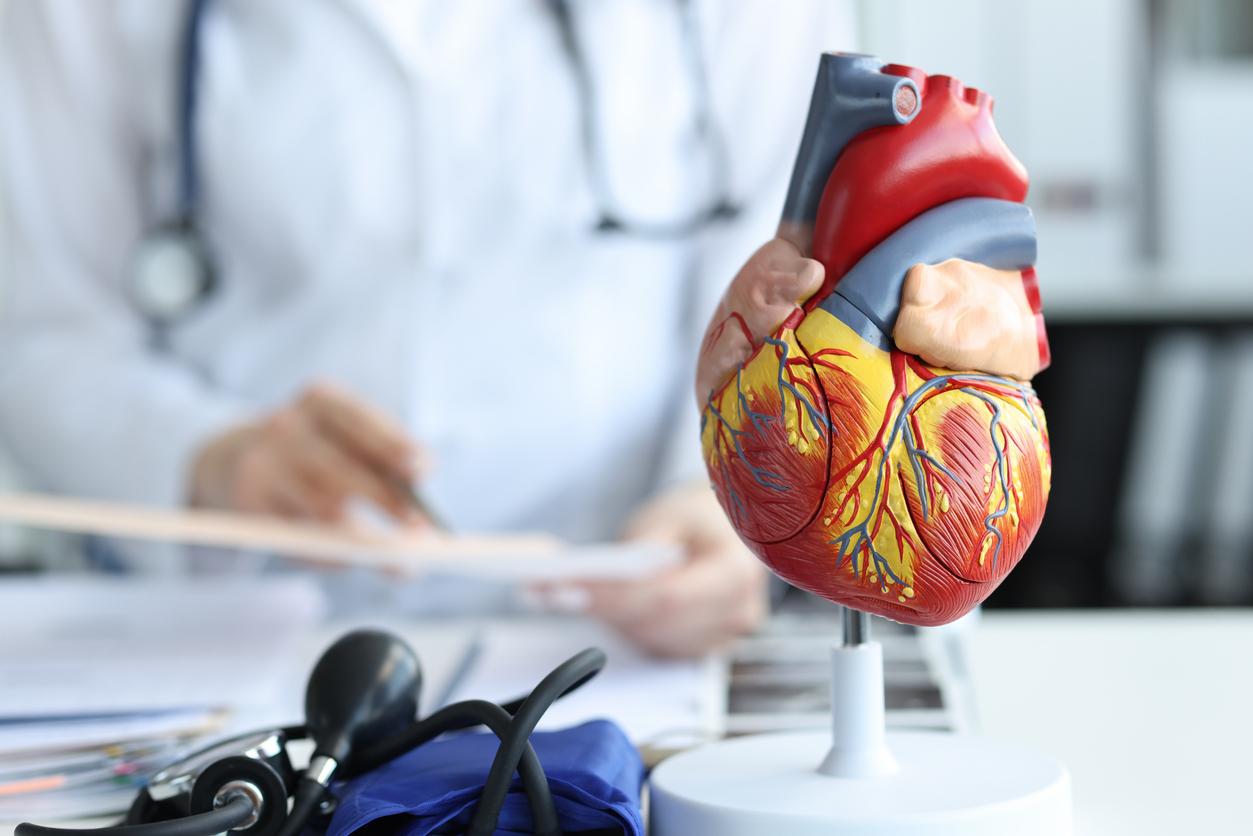A new study shows an association between gastroesophageal reflux disease (GERD) and an increased incidence of atrial fibrillation.

- Atrial fibrillation (AF), also called atrial fibrillation, is the most common heart rhythm disorder. It affects 1% of the general population, but more than 10% of those over 80, according to the High Authority of Health.
- Several observational studies have already shown that GERD was associated with AF, but without determining whether the first pathology caused the second or vice versa.
- This new work shows here that “a higher incidence of AF was found to be associated with GERD (…) which supports the idea that early treatment of patients with GERD could reduce their risk of developing AF,” explain the authors.
This is the most common heart rhythm disorder: atrial fibrillation (AF), also called atrial fibrillation. In France, this heart condition affects 1% of the general population, but more than 10% of those over 80 according to the High Authority of Health. It is characterized by “anarchic and rapid electrical activity of the muscle of the atria (upper chambers of the heart), which results in the disordered and ineffective contraction of these atria, followed by the irregular and rapid contraction of the ventricles (tachyarrhythmia)”, reports Health InsuranceIn addition to age, proven risk factors for developing this heart disease are obesity, diabetes, metabolic syndrome, sleep apnea, certain chronic diseases such as hyperthyroidism, smoking and excessive alcohol consumption.
“A higher incidence of AF has been shown to be associated with GERD”
Several observational studies have already shown that GERD is associated with AF, but without determining whether the first pathology causes the second or vice versa. In new work, the results of which were published on June 2 in Frontiers in Cardiovascular Medicinescientists therefore sought to understand the why and how. According to them, GERD does indeed increase the risk of suffering from atrial fibrillation.
Researchers from the Department of Cardiology, Beijing Aerospace Center Hospital, China, used a Mendelian randomization (MR) technique in two cohorts, including 602,604 (including 129,080 GERD patients and 473,524 controls) and 1,030,836 people (including 60,620 AF patients and 970,216 controls), and assessed the causal relationship between GERD and AF.Compared to observational research, this method is less affected by confounding factors and reverse causality.”, the authors specify.
“A higher incidence of AF was found to be associated with GERD, as shown by MR analysis, supporting the idea that early treatment of patients with GERD may reduce their risk of developing AF“, they indicate.
How does GERD increase AF risk?
Further research is now needed to understand this link, because “the potential mechanism by which GERD may increase the risk of AF remains unclear,” the authors say. However, they offer some clues: “Esophageal injury can cause local release of cytokines, creating favorable conditions for the development of AF. Inflammatory cells have been observed infiltrating the atria of patients with AF, indicating an inflammation-AF link. In addition, GERD can cause dysfunction of the autonomic nervous system, increasing the risk of AF.”
“To help researchers and physicians develop new preventive and therapeutic methods, a more in-depth analysis of the molecular mechanisms underlying these relationships is necessary.”, they conclude.

How does gastroesophageal reflux manifest itself?
“Heartburn (burning pain behind the breastbone) is the most noticeable symptom of gastroesophageal reflux.”, details the MSD Manual. These heartburns may be accompanied by regurgitation, sore throat, hoarseness, coughing or a feeling of a lump in the throat.In rare cases, stomach contents leak into the lungs, causing coughing and/or sneezing.”
The most effective medications to treat this stomach disorder are usually proton pump inhibitors (PPIs) which work by reducing the production of acid by the stomach.

















